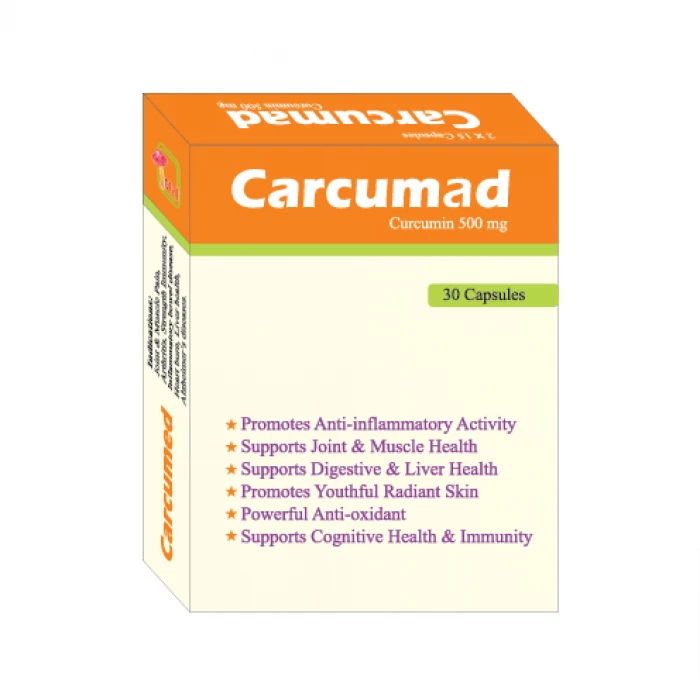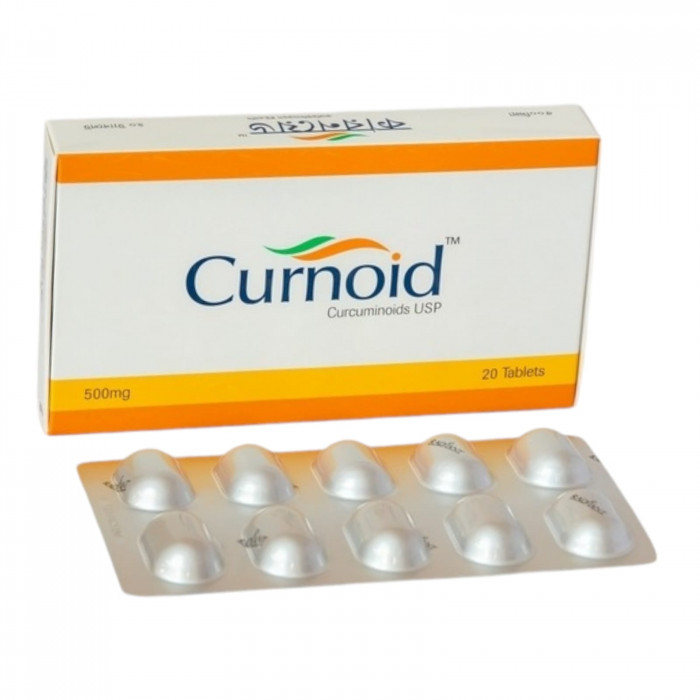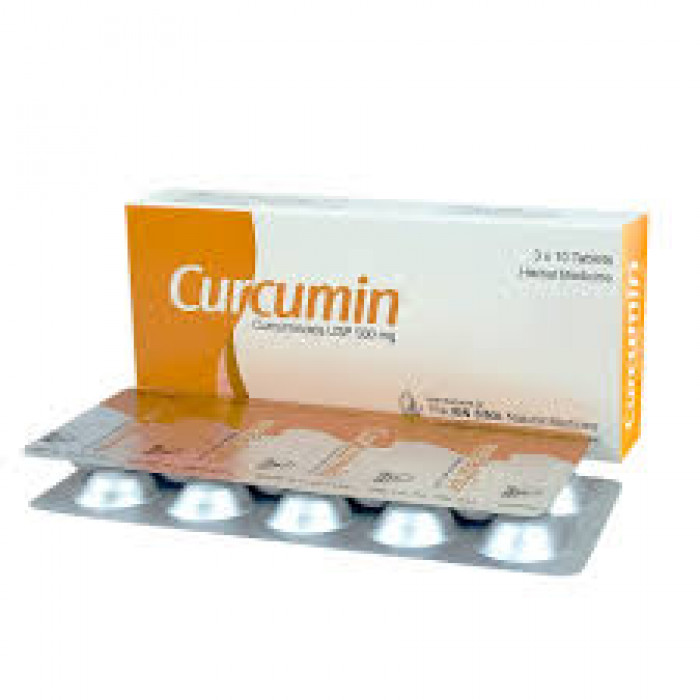
✔ 100% Authentic Product
👁️ Currently Viewing 1981
Carcumed Curcumin 500mg Capsule
- Helps improve the immunity level of the body
- Embodies anti-inflammatory and antioxidant properties
- Provides relief in the condition of joint pain
- May help in the treatment of cardiovascular problems
Discount
Price: ৳ 882
MRP:
৳
900
2%
Off

100% Genuine Products, Guaranteed

Safe & Secure Payments, Always

Fast, Secure & Efficient Delivery

Proper Packaging
 Cash on Delivery - All over Bangladesh
Cash on Delivery - All over Bangladesh Regular Delivery - 12-24 Hours, Dhaka City* Charge Tk.39-59
Regular Delivery - 12-24 Hours, Dhaka City* Charge Tk.39-59 Regular Delivery - 24-48 Hours, Other Cities* Charge Tk.99-110
Regular Delivery - 24-48 Hours, Other Cities* Charge Tk.99-110
 ফ্রি ডেলিভারিঃ - ৯৯৯ টাকা+ অর্ডারে, ঢাকা
শহরে
ফ্রি ডেলিভারিঃ - ৯৯৯ টাকা+ অর্ডারে, ঢাকা
শহরে ফ্রি ডেলিভারিঃ - ২৯৯৯ টাকা+ অর্ডারে, ঢাকার
বাহিরে
ফ্রি ডেলিভারিঃ - ২৯৯৯ টাকা+ অর্ডারে, ঢাকার
বাহিরে
100% Genuine Products, Guaranteed
Safe & Secure Payments, Always
Fast, Secure & Efficient Delivery
Proper Packaging
 Cash on Delivery - All over Bangladesh
Cash on Delivery - All over Bangladesh Regular Delivery - 12-24 Hours, Dhaka City* Charge Tk.39-59
Regular Delivery - 12-24 Hours, Dhaka City* Charge Tk.39-59 Regular Delivery - 24-48 Hours, Other Cities* Charge Tk.99-110
Regular Delivery - 24-48 Hours, Other Cities* Charge Tk.99-110 ফ্রি ডেলিভারিঃ - ৯৯৯ টাকা+ অর্ডারে, ঢাকা
শহরে
ফ্রি ডেলিভারিঃ - ৯৯৯ টাকা+ অর্ডারে, ঢাকা
শহরে ফ্রি ডেলিভারিঃ - ২৯৯৯ টাকা+ অর্ডারে, ঢাকার
বাহিরে
ফ্রি ডেলিভারিঃ - ২৯৯৯ টাকা+ অর্ডারে, ঢাকার
বাহিরে
✅ Description:
Turmeric exhibits antihepatotoxic, antihyperlipidemic, antithrombotic, and anti-inflammatory properties. Additionally, it has antioxidative, antitumoral, and antimicrobial effects, particularly from its sesquiterpene derivatives. Turmeric inhibits prostaglandin synthesis, and its anti-inflammatory effects are believed to stem from the inhibition of leukotriene biosynthesis, which subsequently alters prostaglandin production. Alpha-turmerone inhibits the proliferation of human lymphocytes and reduces the activity of natural killer cells. Curcumin has antineoplastic properties through an antiproliferative mechanism.
✔️ Indications:
Turmeric is utilized for various dyspeptic disorders, especially the sensation of fullness after meals and regular abdominal bloating due to gas. It is also used for osteoarthritis, rheumatoid arthritis, inflammation of the oral mucosa, inflammatory skin conditions, infected wounds, cystitis, itching, and other skin diseases.
✔️ Key Benefits:
- It contains anti-inflammatory properties
- Provides relief in the condition of Arthritis
- Curcumin may help in reducing chronic pain
- Curcumin is a powerful antioxidant and is known to heal wounds
- Curcumin may help in the treatment of cardiovascular problems
- Curcumin is known to improve skin health
✔️ Dosage & Administration
Take 1-2 capsules daily, or as directed by a registered physician.
✔️ Interaction
Turmeric can increase the risk of bleeding when used concurrently with antiplatelet agents, heparin, or thrombolytic medications.
✔️ Contraindications
People with gallstones or bile duct obstruction should not use turmeric. It is also contraindicated for patients with hyperacidity or gastrointestinal ulcers.
✔️ Side Effects
Turmeric generally does not cause significant side effects, but some individuals may experience stomach upset, nausea, dizziness, or diarrhea.
✔️ Pregnancy & Lactation
Turmeric should not be used during pregnancy.
✔️ Precautions & Warnings
Extended use or overdose of turmeric may cause stomach complaints.
✔️ Storage Conditions
Keep turmeric out of reach of children and away from direct sunlight. Store below 30°C in a dry place.
⚠️Disclaimer:
At ePharma, we’re committed to providing accurate and accessible health information. However, all content is intended for informational purposes only and should not replace medical advice from a qualified physician. Please consult your healthcare provider for personalized guidance. We aim to support, not substitute, the doctor-patient relationship.








